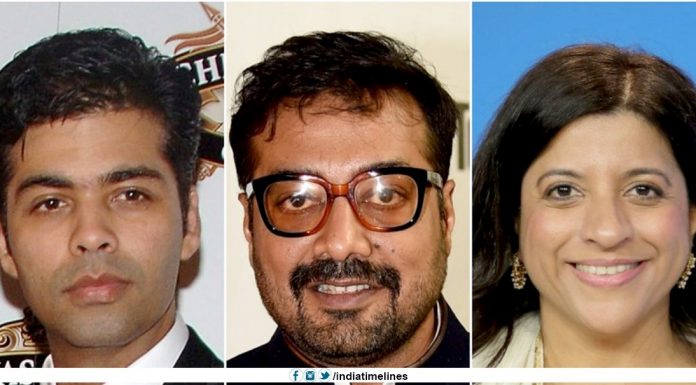
The Central Bureau of Investigation (CBI) has recently filed a second charge sheet in the ongoing probe into the NEET UG paper leak, naming the principal of a prominent school in Hazaribagh. This development marks a significant escalation in the investigation, as authorities aim to unravel the full extent of the conspiracy that sought to undermine the integrity of one of India’s most competitive entrance exams. In this comprehensive article, we will delve deep into the details of the case, shedding light on the involvement of various parties and the potential consequences of this serious breach.
Background of the NEET UG Paper Leak Scandal
The National Eligibility cum Entrance Test (NEET) is one of India’s most important entrance examinations, determining admission to undergraduate medical programs across the country. With thousands of students vying for limited seats, the stakes are incredibly high. Unfortunately, this high-stakes environment has also given rise to unscrupulous elements who seek to exploit the system for their gain.
The NEET UG paper leak case first came to light when students reported irregularities during the examination process. Initial investigations revealed that the exam papers had been leaked prior to the test, allowing certain candidates to gain an unfair advantage. The CBI took over the investigation following the orders of the Ministry of Education, and a thorough probe was launched.
The Role of the Hazaribagh School Principal
In the second charge sheet filed by the CBI, the principal of a well-known school in Hazaribagh has been named as one of the key accused. According to the investigation, the principal allegedly played a pivotal role in orchestrating the paper leak by using his position of authority to access confidential examination materials.
The charge sheet details how the principal allegedly collaborated with other individuals, including intermediaries and coaching centers, to distribute the leaked papers to select students. The CBI has gathered substantial evidence, including electronic communications, witness testimonies, and financial transactions that link the principal to the scandal.
Modus Operandi: How the Leak Unfolded
The CBI’s investigation has revealed a complex network of individuals who were involved in the NEET UG paper leak. The modus operandi followed a well-organized and systematic approach:
- Access to Confidential Papers: The principal, leveraging his position, was able to gain access to the NEET UG question papers before the examination date.
- Distribution to Coaching Centers: These leaked papers were shared with certain coaching centers, which in turn distributed them to students who had paid large sums of money to secure an unfair advantage.
- Communication via Encrypted Channels: To avoid detection, the involved parties communicated through encrypted messaging apps, ensuring that their activities remained under the radar of authorities.
- Financial Trail: Large sums of money changed hands as part of this illegal operation, with students and their families paying hefty amounts to gain access to the leaked papers. The CBI has traced multiple bank transfers and cash transactions linked to the accused.
Impact on Students and Examination Integrity
The NEET UG paper leak has far-reaching consequences, not only for the students who unfairly benefitted from the leak but also for the integrity of the examination system as a whole. Thousands of honest and hardworking students who had prepared diligently for the exam found themselves at a disadvantage, raising serious concerns about the fairness of the selection process.
Moreover, the scandal has shaken the confidence of both students and parents in the examination system. With NEET being a gateway to prestigious medical colleges in India, any breach in its integrity can have long-term repercussions for the country’s education system. The leak has also raised questions about the security protocols in place to safeguard examination papers and the need for stricter measures to prevent such incidents in the future.
Legal Ramifications for the Accused
The CBI has charged the Hazaribagh school principal and other accused individuals under various sections of the Indian Penal Code (IPC) and the Prevention of Corruption Act. If convicted, they could face severe penalties, including imprisonment and hefty fines. The legal proceedings are expected to be long and complex, with the defense likely to challenge the evidence presented by the CBI.
The government has also indicated that it may consider introducing new legislation to impose stricter penalties for individuals involved in examination leaks, including longer prison sentences and increased fines. This case could set a precedent for future instances of examination malpractice, making it clear that such actions will not be tolerated.
CBI’s Ongoing Investigation
The CBI’s investigation is far from over, and more arrests are expected in the coming weeks. The agency is continuing to gather evidence and track down other individuals who may have played a role in the paper leak. This includes identifying the coaching centers involved and investigating the extent of their participation.
The investigation has also expanded beyond Hazaribagh, with the CBI probing potential links to similar examination scams in other parts of the country. This suggests that the NEET UG paper leak could be part of a larger, more organized network that is targeting multiple entrance exams across India.
Steps Taken to Prevent Future Leaks
In response to the NEET UG paper leak scandal, the National Testing Agency (NTA), which conducts the NEET exam, has announced several measures to prevent future leaks and ensure the security of examination papers. These measures include:
- Enhanced Security Protocols: The NTA is working to implement more stringent security protocols for the handling and distribution of examination papers, including the use of tamper-proof packaging and digital encryption.
- Randomized Paper Distribution: Examination centers will now receive randomized question papers, reducing the likelihood of a leak affecting a large number of students.
- Increased Surveillance: Examination centers will be subject to increased surveillance, with CCTV cameras installed to monitor the activities of staff and students during the examination process.
- Stricter Penalties: The government is considering amendments to existing laws to introduce stricter penalties for individuals found guilty of leaking examination papers or participating in examination malpractice.
Conclusion
The NEET UG paper leak involving the Hazaribagh school principal is a stark reminder of the challenges facing India’s examination system. As the CBI continues its investigation, it is crucial that authorities take swift action to hold those responsible accountable and implement measures to prevent future leaks. Only by ensuring the integrity of entrance exams can we restore confidence in the system and ensure a level playing field for all students.




































